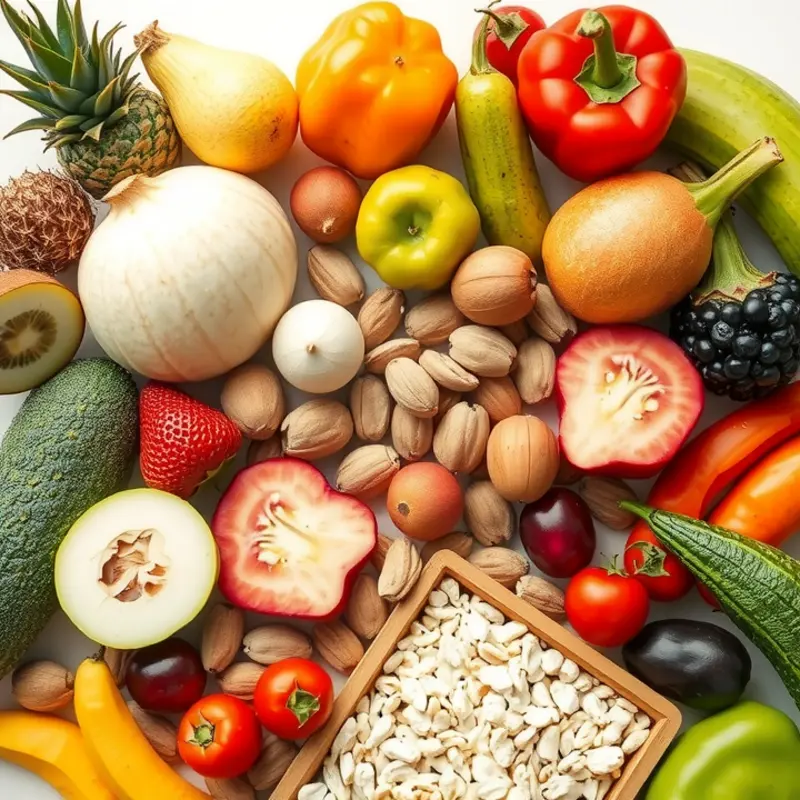Zinc is a crucial mineral that plays a significant role in numerous bodily functions, from immune support to wound healing. For health-conscious adults exploring ways to enhance their diets, understanding zinc’s benefits, sources, and daily requirements is essential. This article decodes the importance of zinc, empowering you to make informed dietary choices for optimal health.
Why Zinc Matters: Health Benefits and Functions

Zinc is an essential mineral pivotal for numerous bodily functions. It plays a crucial role in maintaining optimal immune health by fortifying the body’s defense system. The production and activation of T-lymphocytes, a type of white blood cell, are heavily dependent on zinc. These cells combat infections and cancerous cells, highlighting zinc’s importance in immune functionality.
On a cellular level, zinc is indispensable for cell growth and division. This mineral is a key component in various enzymatic reactions, aiding in DNA synthesis and repair, and cellular metabolism. Zinc’s involvement in enzyme function underscores its necessity for maintaining healthy skin, as well as promoting efficient wound healing.
Zinc’s antioxidant properties contribute significantly to protecting the body from oxidative stress and minimizing cellular damage from free radicals. These unstable molecules can lead to chronic inflammation and a higher risk of various diseases. By neutralizing free radicals, zinc helps prevent damage to tissues and vital organs.
Deficiency in zinc can lead to a multitude of health issues. Symptoms may include weakened immunity, increased susceptibility to infections, hair loss, skin problems, and impaired wound healing. In severe cases, zinc deficiency can result in stunted growth in children and contribute to developmental issues.
Conversely, maintaining adequate zinc levels fosters several health benefits. It can enhance immune responses, lower the risk of infections, and improve the healing process after injuries. Zinc is also critical for maintaining the sense of taste and smell; deficiencies can impair these senses.
Recent studies suggest that zinc may play a role in reducing the severity and duration of the common cold. While its effectiveness remains a subject of ongoing research, there is evidence suggesting that zinc supplementation might be beneficial during the early stages of illness.
For individuals interested in boosting their zinc intake through diet, there are several options. Foods rich in zinc include meat, shellfish, legumes, seeds, and nuts. These natural sources can be easily integrated into meal planning to ensure sufficient zinc levels. For further tips on incorporating such ingredients into your diet, consider exploring practical strategies for minimal-prep meals, which can be found here.
Overall, zinc is an essential component of a balanced diet. Its roles in immune defense, cellular function, and antioxidative action illustrate why maintaining adequate levels should be a priority. Awareness of zinc’s health benefits can guide dietary choices, ensuring that this vital mineral contributes effectively to overall well-being.
Food Sources of Zinc: Incorporating It into Your Diet

Zinc, a trace mineral essential for immune function, metabolism, and cell regeneration, is abundant in a variety of foods. Ensuring an adequate intake of zinc through your diet can support overall health and vitality. Both plant-based and animal-derived foods are excellent sources of zinc, offering diverse options suitable for various dietary preferences.
Animal sources of zinc tend to have higher bioavailability, meaning the body absorbs more of the mineral. Some of the richest zinc-laden foods include red meats like beef and lamb, as well as poultry and seafood. Oysters, in particular, are renowned for their high zinc content. For a simple way to include more zinc in your meals, try adding a serving of grilled chicken or a fillet of fish to your dinner plate. Incorporating seafood into your diet can be made easier with strategic meal preparations, such as those suggested in speedy seafood prep tips.
For those following a vegetarian or plant-based diet, numerous zinc-rich options exist. Legumes, including lentils and chickpeas, are excellent choices. Soaking and sprouting grains and legumes can increase zinc absorption. Nuts and seeds, particularly pumpkin seeds, cashews, and almonds, are convenient additions to a healthy snack or salad. Whole grains like quinoa and fortified breakfast cereals can also contribute substantially to your zinc intake.
If you are looking to add more zinc through your meals, breakfast is a good place to start. Opt for a bowl of fortified cereal paired with nuts and seeds, such as chia or flaxseed, for an energizing start to the day. Lunches could focus on vibrant salads topped with quinoa and a variety of beans or lentils, which not only add zinc but also provide a fiber boost.
To enhance zinc absorption, consider the role of dietary components that can either inhibit or boost uptake. Phytates found in whole grains and legumes can bind zinc, making it less available for absorption. Cooking methods like soaking or fermenting can reduce these phytates. Conversely, consuming these foods with animal proteins or vitamin C-rich ingredients, such as bell peppers or citrus fruits, can enhance the body’s ability to absorb zinc.
Balance and variety are key when planning meals to ensure you’re receiving adequate zinc alongside other essential nutrients. Consider batch-cooking dishes like stews and casseroles that incorporate both plant and animal sources of zinc. This not only enhances flavor but also allows for convenient, nutrient-dense meals throughout the week.
Mindful ingredient choices and diverse preparations make it easier to meet daily zinc needs while enjoying satisfying and nutritious meals. Ensuring a diet rich in zinc will support your health goals and contribute to overall well-being.
Final words
Incorporating sufficient zinc into your diet is vital for maintaining overall health. This mineral not only strengthens your immune system but also aids in various physiological functions, such as tissue repair and protein synthesis. By including a variety of zinc-rich foods, you can support your body’s needs while enjoying delicious meals. Remember, balance and variety are key to a healthy diet, and paying attention to your zinc intake can enhance your well-being. Choose to prioritize zinc-rich options, and embrace a healthier lifestyle today.







